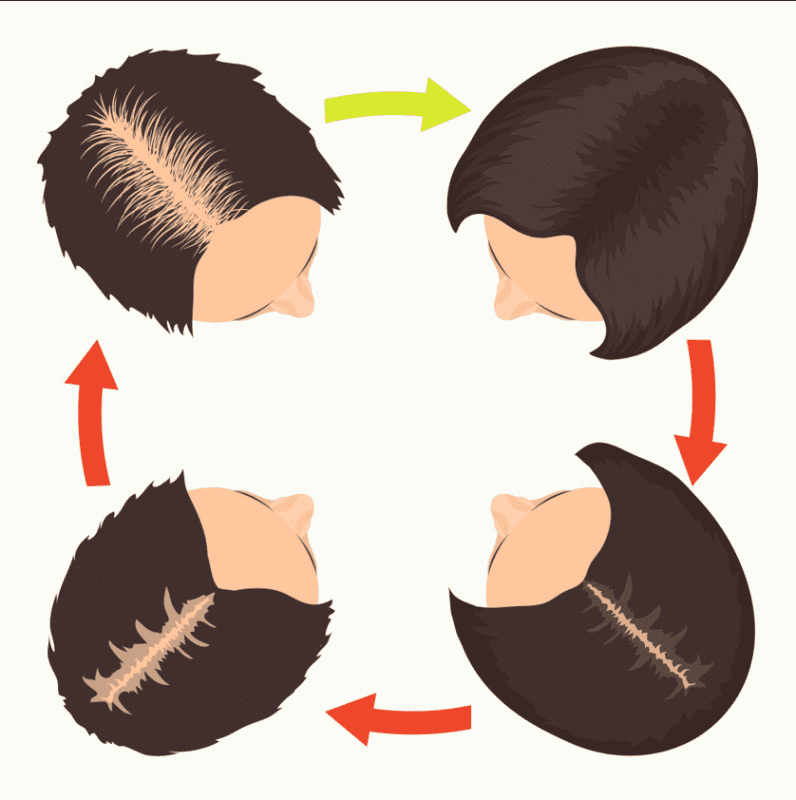
Understanding Hair Thinning During Menopause
Hair thinning during menopause is a common concern, but it is different from general hair loss. This type of hair thinning is primarily caused by hormonal changes, particularly the drop in estrogen and progesterone levels, which affects the hair growth cycle.
Why Menopausal Hair Thinning is Different
Unlike typical hair loss, which can be caused by genetics, stress, or diet, hair thinning during menopause is often related to the hormonal imbalances that occur as women age. As estrogen levels decrease, hair follicles may become weaker, leading to thinning hair, especially around the crown of the head.
Natural Ways to Manage Hair Thinning During Menopause
There are natural remedies that can help reduce hair thinning and promote healthier hair.
- Balanced Diet: Ensure that your diet is rich in nutrients like proteins, vitamins B, C, D, and minerals such as zinc and iron. These nutrients help to nourish the hair follicles and promote hair growth. Foods like leafy greens, nuts, and fatty fish are excellent sources of these nutrients.
- Stress Reduction: Menopausal women may experience heightened stress, which can worsen hair loss. Stress-reduction techniques such as meditation, yoga, or even regular physical exercise can help manage stress and balance hormones.
- Gentle Hair Care: Avoid using heated styling tools and tight hairstyles that can cause additional breakage. Opt for hydrating hair care products that protect hair and keep it nourished.
- Scalp Care: Natural oils like rosemary and peppermint can stimulate blood circulation in the scalp and may help encourage hair growth. Massaging your scalp regularly can also improve hair health.
When to Seek Professional Help
If your hair thinning becomes severe or does not improve with these methods, it may be time to consult a healthcare provider to rule out other conditions or discuss more advanced treatments.
For more information on managing hair loss during menopause, check out these resources from Mayo Clinic and Verywell Health.

